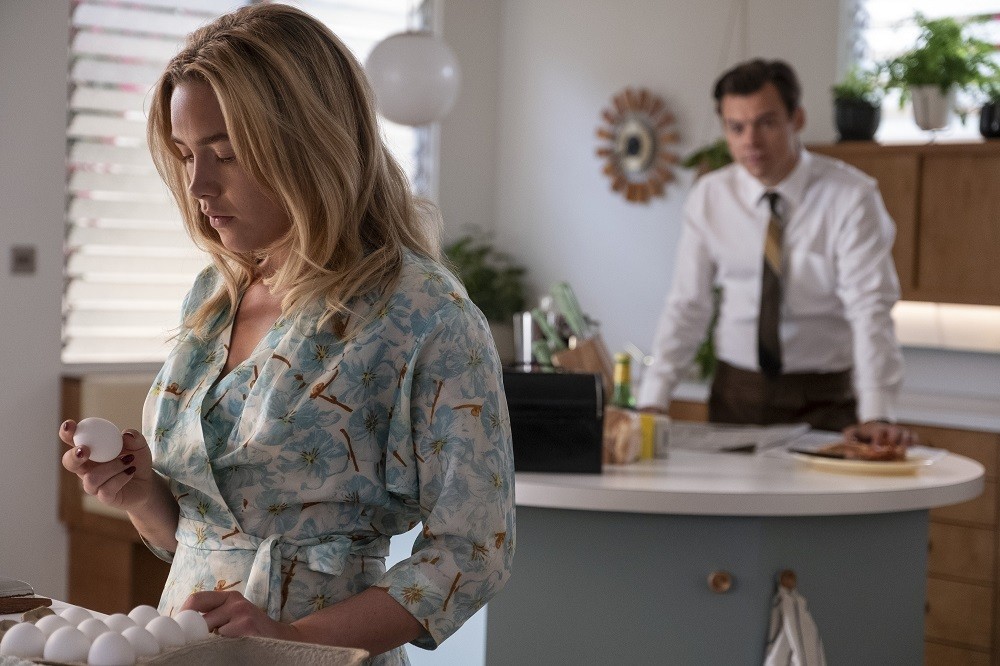Don’t Worry Darling

Florence Pugh and Harry Styles star in DON'T WORRY DARLING. (Photo: Warner Bros.)
While it features rising stars on both sides of the camera, Don’t Worry Darling is so intent on being provocative that it forgets to make sense.
Despite stellar production values and committed performances, this twisty psychological thriller from director Olivia Wilde (Booksmart) is an ambitious yet muddled examination of empowerment, oppression, toxic masculinity, and sexual politics.
The film re-creates a utopian facade of 1950s suburban conformity, then peels away layers to reveal corruption and discontent. As for the film itself, once you dig beneath the surface, its intriguing ideas are probed through a mostly familiar lens.
The bulk of the story takes place in a pristine housing development known as Victory — a desert oasis with a distinctly Stepford sense of happiness and uniformity, from the daily routine to the sunshine and palm trees.
As their husbands leave each morning for mysterious top-secret jobs that vaguely involve “changing the world,” the housewives seem to bond over their loyalty and obedience. As their Lamaze class mantra goes: “There is beauty in control. There is grace in symmetry. We move as one.”
Jack (Harry Styles) and Alice (Florence Pugh) are a childless couple, which gives Alice more free time than her neighbors. But she starts experiencing hallucinations and growing suspicious of what goes on outside their bubble, and what Jack’s boss, Frank (Chris Pine), is apparently hiding.
One day, Alice thinks she saw a plane crash. Later, she wanders into the desert alone. She’s alarmed when a disturbed woman’s (Kiki Layne) suicidal tendencies are brushed off. Jack and Frank are reassuring, yet Alice is determined to discover the truth.
Wilde and her team offer a stylish and immersive sense of time and place — from the throwback fashions to the pastel houses and cars to the patriarchal attitudes.
Meanwhile, the melodramatic screenplay gradually reveals broader details in a way that builds tension while also feeling more manipulative as fantasy and reality eventually blur. It’s structured like a puzzle that drops clues, then pulls the rug in the incoherent final half-hour.
Pugh (Little Women) still generates sympathy with a commanding portrayal mixing Alice’s strength and vulnerability as she becomes the audience’s window into the central mystery. Styles showcases genuine screen presence in his most significant film role to date.
In delivering its high-minded surprises, however, Don’t Worry Darling tends to relegate their characters to the background.
Rated R, 122 minutes.